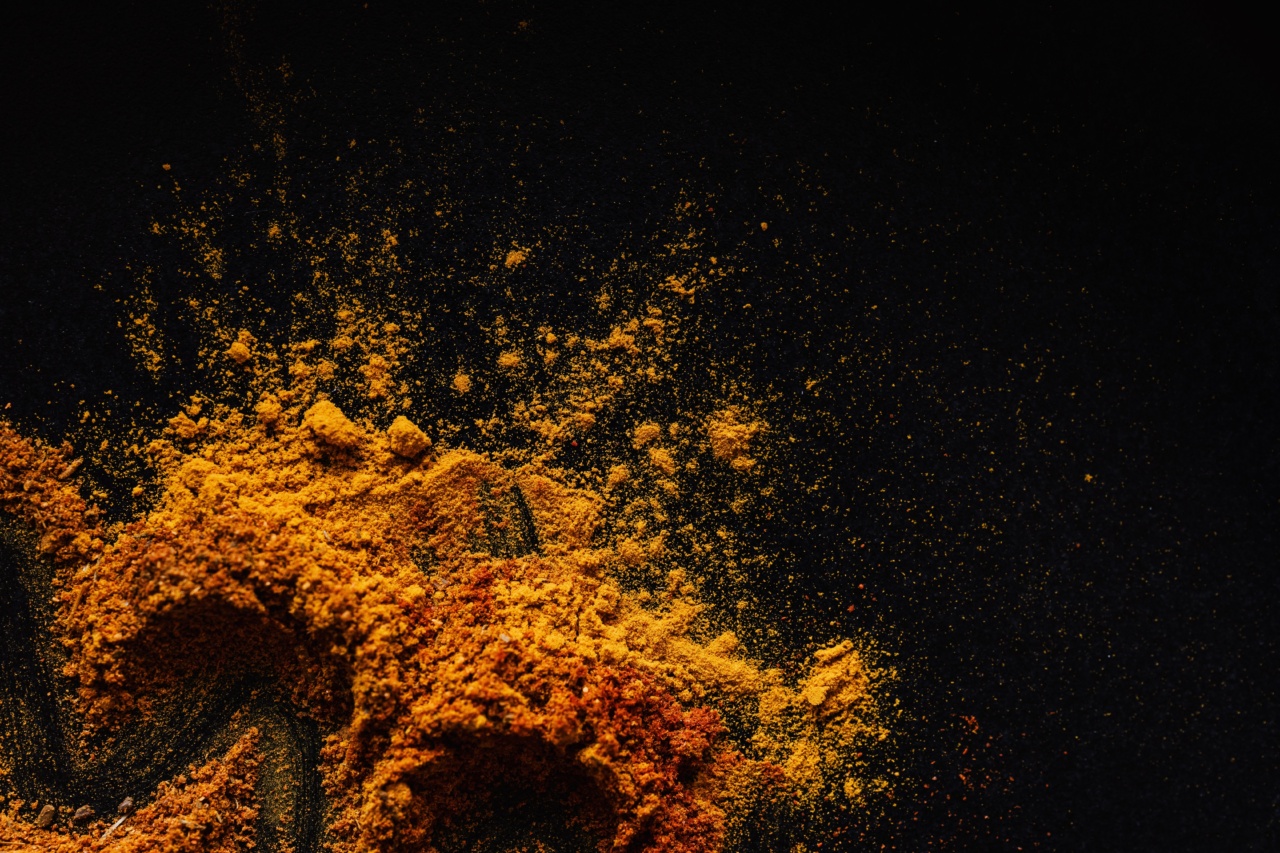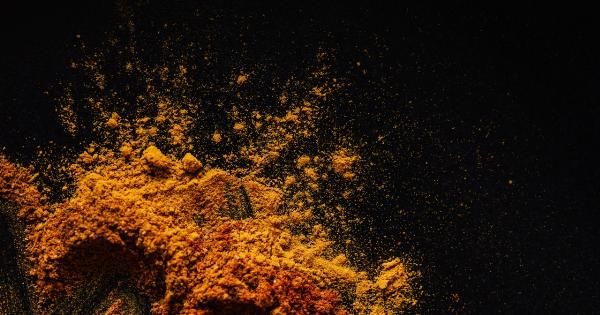Turmeric is a popular spice that has been used for centuries in traditional medicine due to its potent antioxidant and anti-inflammatory properties.
Curcumin, the most active ingredient in turmeric, has been shown to have powerful anti-inflammatory effects in numerous studies. This article will discuss the powerful anti-inflammatory effects of turmeric and how it can help in treating various inflammatory conditions.
How inflammation works
Inflammation is a natural response of the immune system to injuries and infections. It is characterized by redness, swelling, pain, and warmth in the affected area.
Inflammation is essential for the body’s healing mechanism, and it helps fight off infections and repair damaged tissues. However, chronic inflammation can lead to various health problems, including cancer, heart disease, and autoimmune disorders.
Chronic inflammation occurs when the immune system is constantly activated due to a persistent infection or long-term exposure to toxins or irritants.
Why turmeric is a potent anti-inflammatory agent
Turmeric contains powerful anti-inflammatory compounds called curcuminoids, the most active of which is curcumin.
Curcumin has been shown to have potent anti-inflammatory effects by inhibiting the activity of various enzymes and transcription factors that play a crucial role in inflammation. Curcumin also reduces the production of inflammatory cytokines, which are signaling molecules that promote inflammation.
Additionally, curcumin has potent antioxidant properties, which help reduce oxidative stress, a major contributor to chronic inflammation.
Turmeric’s anti-inflammatory effects on arthritis
Arthritis is a common inflammatory condition that affects millions of people worldwide. It is characterized by joint pain, stiffness, and swelling.
Several studies have shown that curcumin can help reduce the symptoms of arthritis by inhibiting the production of inflammatory cytokines and enzymes. In a study of 45 patients with rheumatoid arthritis, curcumin was found to be as effective as a non-steroidal anti-inflammatory drug (NSAID) in reducing joint pain and swelling.
Turmeric’s anti-inflammatory effects on inflammatory bowel disease (IBD)
Inflammatory bowel disease (IBD) is a group of inflammatory conditions that affect the digestive tract, including Crohn’s disease and ulcerative colitis. These conditions are characterized by inflammation, diarrhea, and abdominal pain.
Several studies have shown that curcumin can help reduce the symptoms of IBD by inhibiting the production of inflammatory cytokines and promoting healing of the intestinal lining. In a study of 117 patients with ulcerative colitis, those who received curcumin supplements had a significantly lower relapse rate than those who received a placebo.
Turmeric’s anti-inflammatory effects on cardiovascular disease
Cardiovascular disease is a leading cause of death worldwide and is often associated with chronic inflammation. Several studies have shown that curcumin can help reduce the risk of cardiovascular disease by reducing inflammation and oxidative stress.
In a study of 121 patients with metabolic syndrome, those who received a curcumin supplement had a significant reduction in markers of inflammation and oxidative stress.
Turmeric’s anti-inflammatory effects on cancer
Cancer is a complex disease characterized by abnormal cell growth and proliferation. Chronic inflammation has been shown to contribute to the development of cancer by promoting DNA damage and tumor growth.
Several studies have shown that curcumin can help reduce the risk of cancer by inhibiting inflammatory cytokines and enzymes and promoting apoptosis, or programmed cell death, in cancer cells. In a study of 44 men with prostate cancer, those who received a curcumin supplement showed a significant reduction in markers of inflammation.
Turmeric’s anti-inflammatory effects on skin conditions
Several skin conditions, including psoriasis, eczema, and acne, are associated with chronic inflammation.
Studies have shown that curcumin can help reduce the symptoms of these conditions by inhibiting inflammatory cytokines and promoting healing of the skin. In a study of 25 patients with psoriasis, curcumin was found to be as effective as a topical steroid cream in reducing inflammation and redness.
Turmeric dosage and safety
Turmeric is generally considered safe when taken in doses of up to 8 grams per day. However, high doses may cause gastrointestinal symptoms, including nausea and diarrhea.
Turmeric supplements may also interact with certain medications, including blood thinners, so it is important to consult a healthcare provider before taking turmeric supplements.
Conclusion
Turmeric is a potent anti-inflammatory agent that has been shown to have beneficial effects on various inflammatory conditions, including arthritis, IBD, cardiovascular disease, cancer, and skin conditions.
Curcumin, the active ingredient in turmeric, has been shown to have powerful anti-inflammatory effects by inhibiting the activity of various enzymes and cytokines that promote inflammation. However, high doses of turmeric may cause gastrointestinal symptoms, and turmeric supplements may interact with certain medications.




























